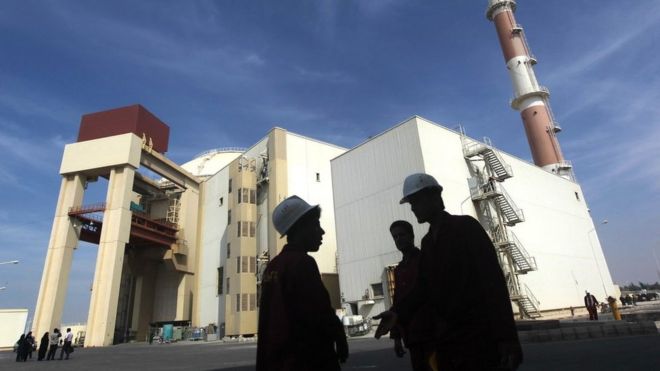 AFP
AFP
A landmark nuclear deal between Iran and world powers has in effect collapsed, four years after it went into effect. Here's how it got to this point.
What did the deal do?
Iran has always insisted its nuclear programme is peaceful.
But suspicions it was being used as a cover to develop a nuclear bomb prompted the UN Security Council, US and EU to impose crippling sanctions from 2010.
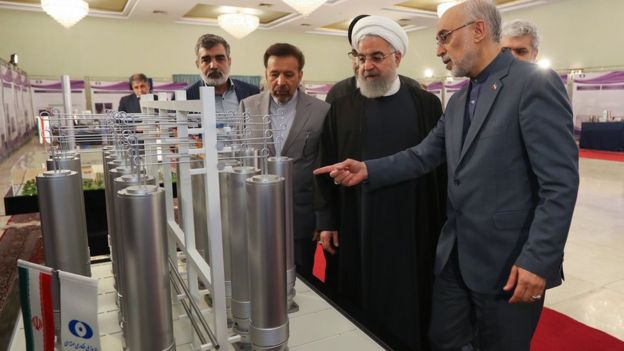 EPA
EPA
In 2015, Iran reached a deal with six powers - the US, UK, France, China, Russia and Germany - that saw it limit its nuclear activities in return for sanctions relief.
The deal restricted Iran's enrichment of uranium, which is used to make reactor fuel but also nuclear weapons. It was also required to redesign a heavy-water reactor being built, whose spent fuel would contain plutonium suitable for a bomb, and allow international inspections.
What led to its collapse?
First, US President Donald Trump abandoned the deal in May 2018 and reinstated US sanctions. He wanted a new deal that would also curb Iran's ballistic missile programme and its involvement in regional conflicts.
Iran refused and saw the value of its currency plummet and its inflation rate soar as the sanctions took effect.
When the sanctions were tightened in May 2019, Iran stopped abiding by some commitments in the deal.
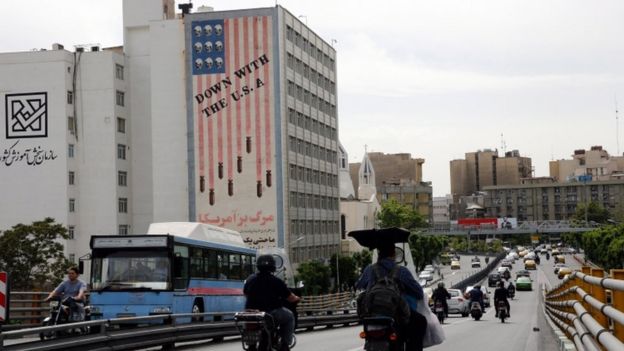 EPA
EPA
But it was in January 2020 that the deal completely fell apart.
Iran was expected to announce the latest steps in its gradual retreat from the deal on 5 January, just two days after the US air strike near Baghdad International Airport in Iraq which killed Iran's top military general Qasem Soleimani.
In an atmosphere of escalating tensions, Iran declared it would no longer abide by any of the restrictions imposed by the deal - including limitations on its enrichment of uranium.
Want to know more?
- US Secretary of State Pompeo visits Iraq amid Iran tensions
- US sends aircraft carrier and bomber task force to 'warn Iran'
- Iran nuclear deal: Key details
- Six charts that show how hard US sanctions have hit Iran
- Iran oil waivers: Is it about to become more expensive to fill my car?
- Nuclear conflict risk: Why the bomb is back

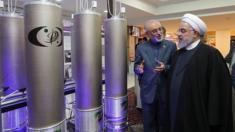
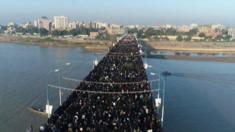





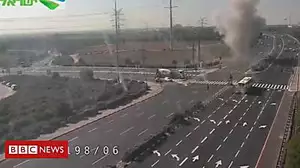
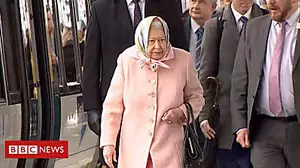




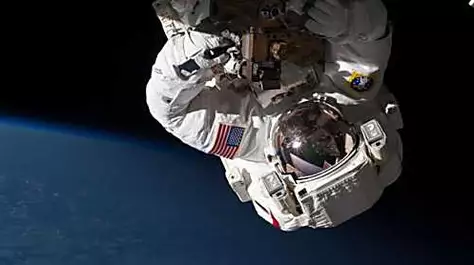



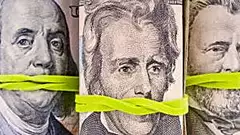



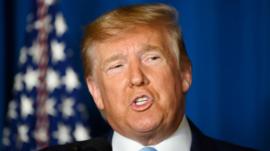



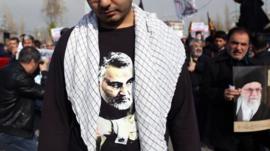
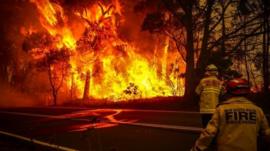




No comments:
Post a Comment